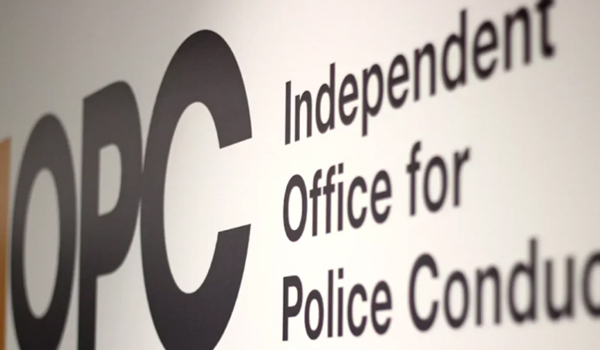IOPC annual report shows five per cent rise in police complaints
The number of police complaints in England and Wales in 2023/24 rose to 85,458 – a five per cent increase on the total number logged in the previous year.
The Independent Office for Police Conduct (IOPC) said more than half related to relatively “everyday issues” classed as ‘the delivery of duties and services’, rather than serious misconduct.
The IOPC’s annual report, ‘Police complaints – statistics for England and Wales in 2023/24’, showed there were 151,538 allegations in total, although it noted that a complaint case may involve more than one allegation.
Of these 32,511 were formally recorded under Schedule 3 of the Police Reform Act 2002, a three per cent increase on the previous year.
Forces took an average of six working days to contact a complainant after the complaint was made – one day longer than the previous year.
The largest proportion of allegations (53 per cent) related to ‘delivery of duties and service’, the second highest was ‘police powers, policies and procedures’ at 21 per cent, followed by ‘individual behaviours’ at 13 per cent.
‘Discriminatory behaviours’ made up three per cent (4,575) of allegations – 50 per cent of these were allegations of race discrimination, 18 per cent about disability, and 14 per cent of sex discrimination.
‘Discreditable conduct’ was one per cent of the total allegations (1,019) an increase of 37 per cent on the previous year.
In total, 81,776 complaints were finalised during the year (31,182 formally and 50,594 informally) – a four per cent increase on the previous year.
Of the 31,182 complaint cases handled formally, 57 per cent had at least one allegation resulting in an explanation being given, 13 per cent had at least one allegation resulting in learning for an individual or a police force and seven per cent had at least one allegation resulting in an apology or debrief.
The report 141 complaint cases (less than one per cent) that were handled formally and subject to a special procedures investigation had at least one allegation resulting in either misconduct meeting or hearing.
Forces took on average 20 working days to finalise a complaint handled informally (two days more than in the previous year) and 133 working days to complete complaints handled formally (increase of eight days).
Local policing bodies received 4,275 applications from complainants requesting a review of how their complaint had been handled, a reduction of 91 on the previous year. They found that for 21 per cent of complaints that were not investigated by forces, and 25 per cent where there had been a police investigation, the handling or outcome was not reasonable or proportionate.
The IOPC received 2,136 applications to review complaints handled by police forces, a seven per cent increase on the previous year.
“We found that for 32 per cent of complaints that were not investigated by forces, and for 33 per cent complaints where there had been a police investigation, the handling or outcome was not reasonable or proportionate,” said the IOPC.
Commenting on the report, IOPC Director General Rachel Watson said: “We are working closely with forces to help ensure professional standards departments get complaint handling right first time.
“It is encouraging to see forces continued to contact complainants promptly. Early communication is vital and, while the average time taken rose slightly to six days, this is still a quick response and provides the opportunity to resolve complaints as quickly as possible.
“This year saw an five per cent rise in the number of complaints logged, with more than half relating to the relatively everyday issues classed as ‘the delivery of duties and services’, rather than serious misconduct.
“There was a case to answer for misconduct or gross misconduct in 26 per cent of allegations investigated subject to special procedures, a small rise on last year.
“Despite the increase in complaints, the number that police forces finalised also rose. It is good to see that forces are managing to handle the volume, closing on average roughly the same amount of cases as they open. We look forward to continuing working with them to improve the process and achieve greater public confidence.”
Significant changes were made to the complaints system in February 2020 to make it simpler and more proportionate – this included widening the definition of a complaint to “any dissatisfaction with the police service”.
This is the fourth set of statistics published since the change – although the IOPC notes that the data should still be treated as “experimental and comparisons with previous years treated with caution”.


